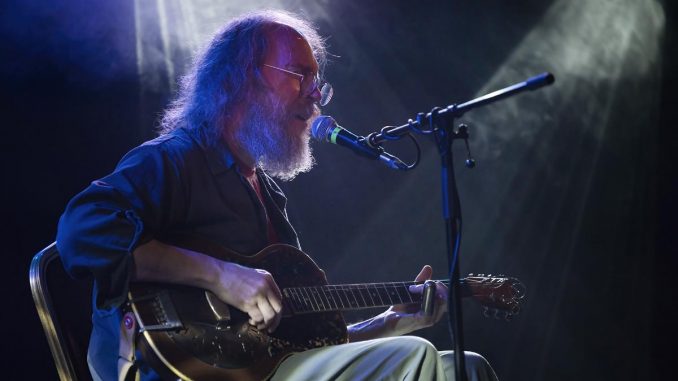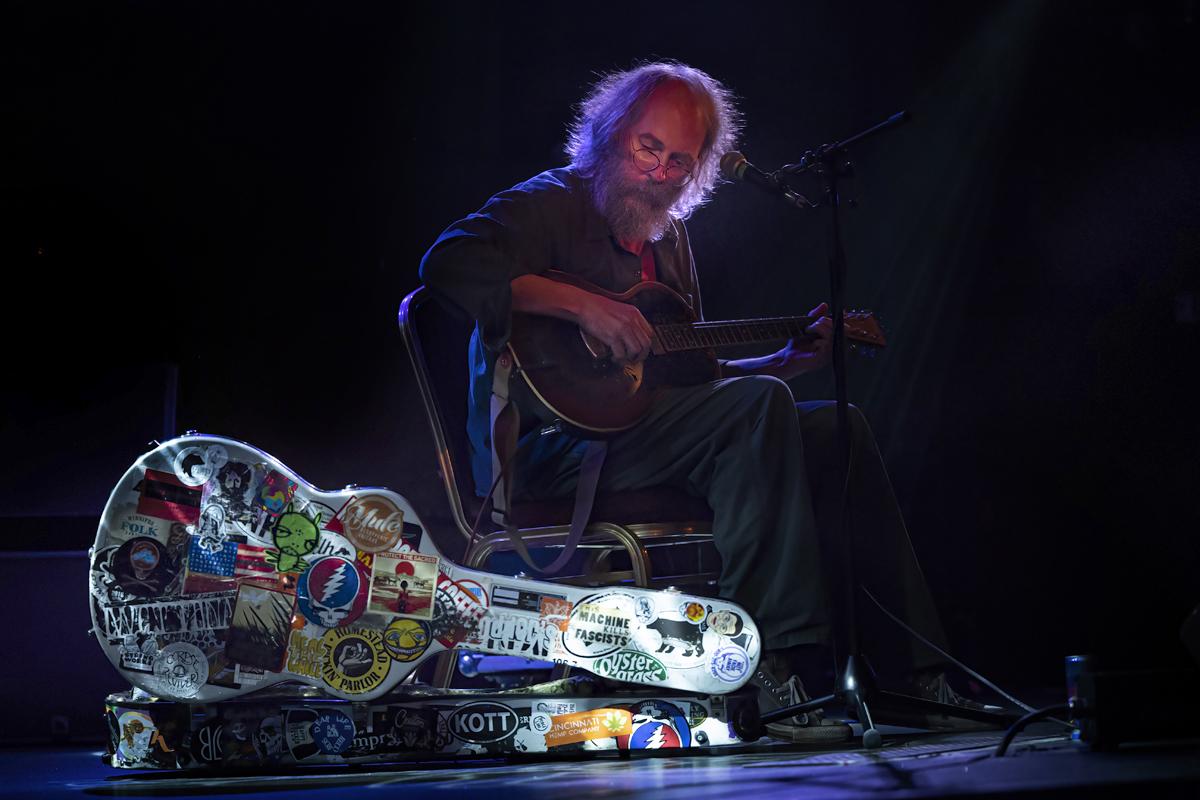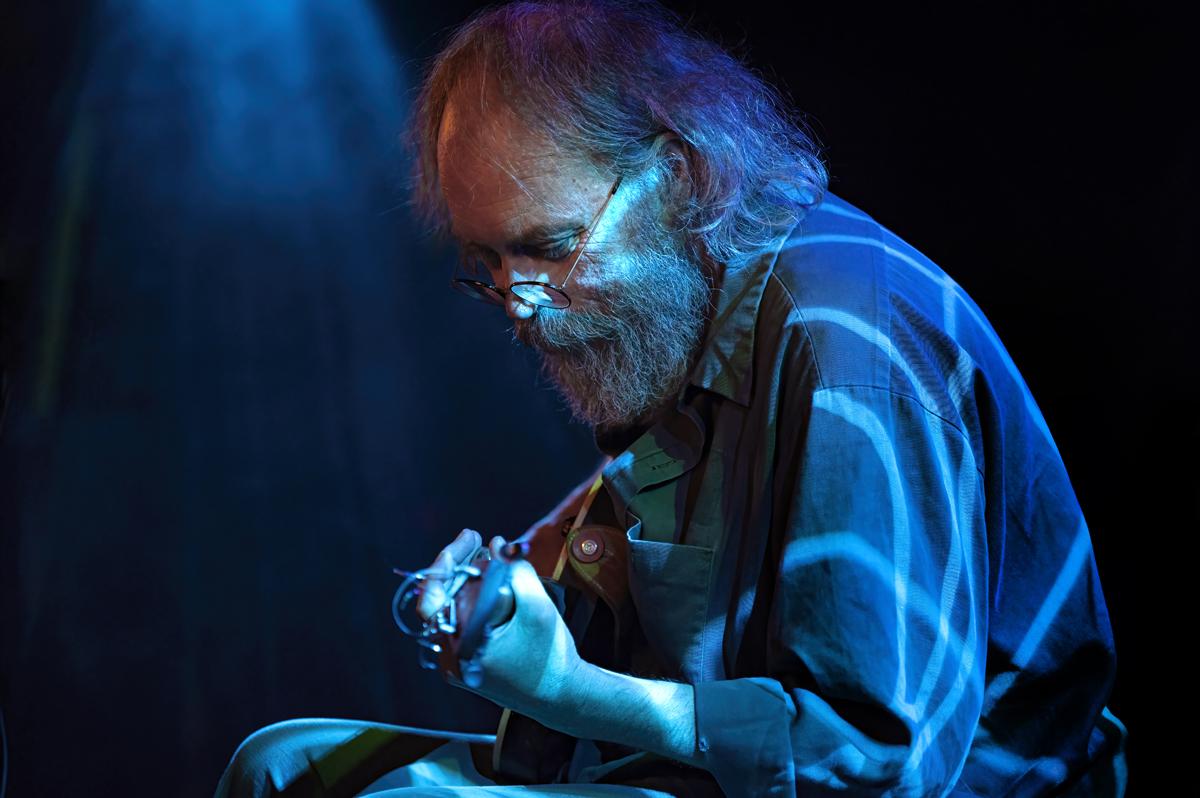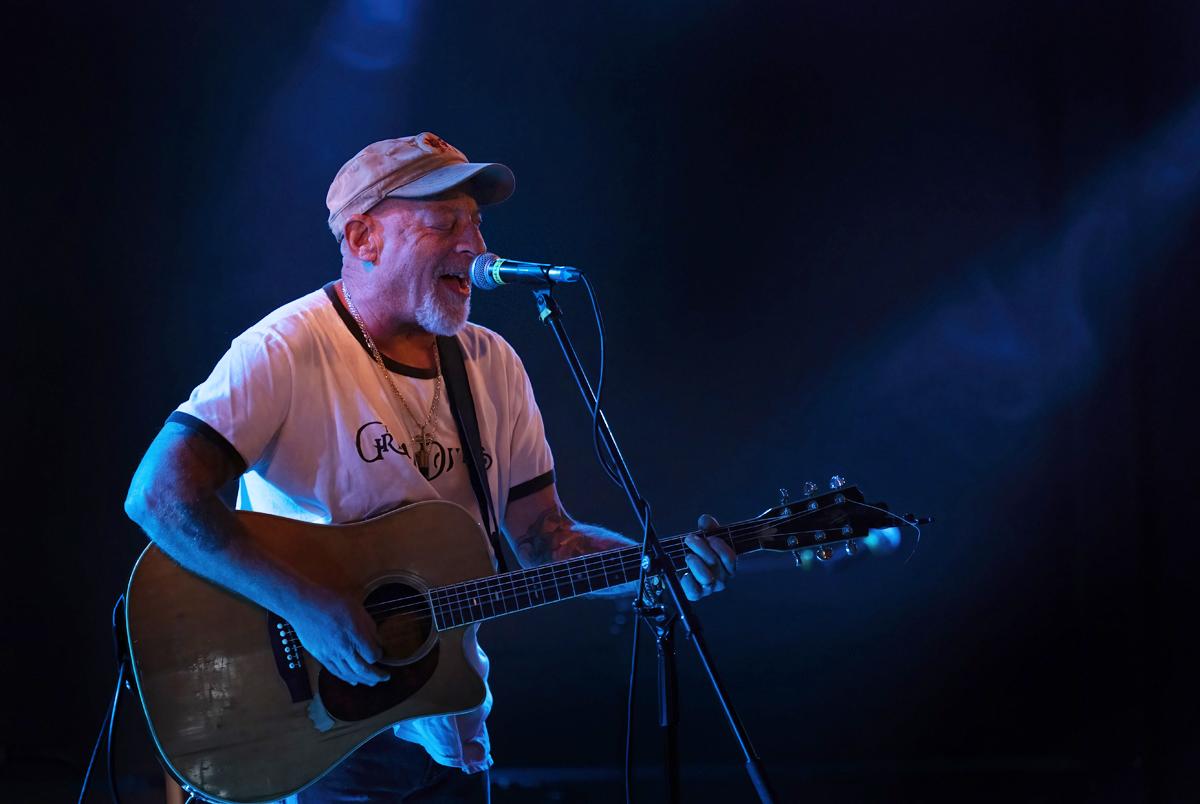
When Charlie Parr wandered casually onstage, checked everything was in order and then tuned his guitar, those not familiar with him might easily have mistaken him for a roadie. It was only when he took his seat, the music went down and the lights went up, that many of the very decent crowd at Leeds’s fabulous Brudenell Social Club, even noticed him. That soon changed however, as by way of contrast to his unassuming entrance, Parr instantly absorbed and delighted his audience with a spellbinding set which combined his own songs with well chosen covers reflective of his roots and influences.
Opening up with ‘817 Oakland Avenue’ taken from his excellent latest album ‘Last of the Better Days Ahead’, Parr was afforded total silence by an appreciative audience. At a time when chattering over performers is becoming an increasing blight on the live music scene, even at folk gigs, it was a reminder of the magical rapport that a great performer can establish with an audience. His years on the folk circuit have imbued Parr with a dry, sometimes laconic, line in stage patter. Whether he was making a short witty comment or relating an amusing story, he paced his set perfectly.

In one such story, relating to a previous visit to Leeds, he told of how when stopping in an Airbnb he and his tour manager were visited by two large burly gentleman demanding that debts were settled. The incident brought to Parr’s mind ‘Furniture Man Blues’ a 1930’s song about a repo man by ragtime performer Lil McClintock – which of course he then proceeded to play. Although Parr’s stories, which covered subjects as diverse as lockdown and burritos, were fascinating, it was the songs which they explained, illustrated, or contextualised that were the main event. Others like ‘On Listening to Robert Johnson’ – “A man who changed my life” spoke very much for themselves.
Parr not only has a large repertoire of songs at his disposal; he never uses a setlist. He is a very gifted guitar player and possesses a strong, resonant voice. Choosing to finish off with two selections from the Harry Smith Anthology of American Folk Music, firstly ‘Old Dog Blue’ – although Parr said his version was more influenced by that of Dave Van Ronk, and then ‘Times Ain’t What They Used To Be’, Parr left nobody in any doubt as to where his influences lay. The final song saw Parr put down his guitar to deliver a genuine ‘hairs on the back of the neck moment’ with an unaccompanied rendition of Claude Ely’s ‘There Ain’t No Grave Gonna Hold My Body Down’. It was a fittingly rousing finale to cap what had been a breathless evening of American folk music.

The evening had earlier begun with a typically robust performance from Jerry Joseph, who as well as touring solo, has been filling support slots around the UK recently and will shortly do the same for his friends The Drive-By Truckers (who backed him on his ‘The Beautiful Madness’ album). Joseph delivered his songs with passion and an energy in his strong gravel voice, speaking at length (too much length at times) about them. However, these long-winded explanations as well as his frantic guitar playing and barked out lyrics served to take out the texture and nuance of his writing, making the songs less relatable than their recorded versions.



